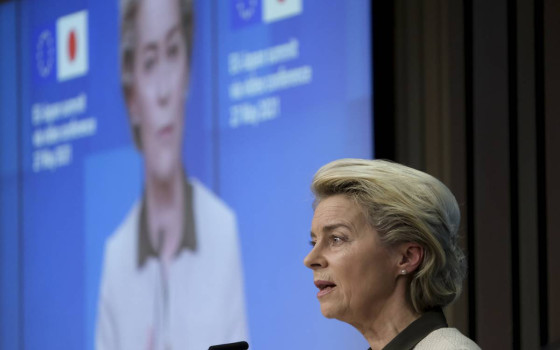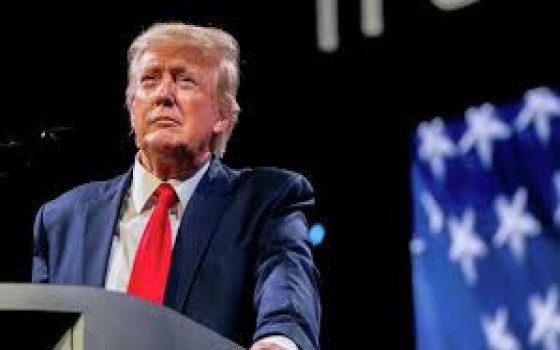A glimmer of hope for avoiding a devastating trade war between the US and the EU... following a phone call between Trump and the European Commission President... and today a European parliamentary delegation in Washington

- Europe and Arabs
- Monday , 26 May 2025 9:23 AM GMT
Brussels: Europe and the Arabs
That must have been a very "good" call. European Commission President Ursula von der Leyen finally got on the phone with Donald Trump for a lengthy conversation on Sunday—and it seems to have gone fairly well. Von der Leyen posted on Twitter shortly before 10 p.m. CET: "Good call with @POTUS." She added: "Europe is ready to advance talks quickly and decisively," referring to trade negotiations to avoid U.S. tariffs. "To reach a good agreement, we need time until July 9."
Trump was convinced. "I have agreed to the extension—July 9, 2025—it was a pleasure to do so," he said on Truth Social, above a screenshot of von der Leyen's Twitter post.
This is according to a report by Brussels Playbook, the European version of the American magazine Politico, which added: "All of this offers a glimmer of hope that Europe can avoid a devastating trade war that could damage its economy." She added that Trump's agreement to hold direct talks with von der Leyen—and subsequently extending the deadline—were positive developments. Along with a brief meeting in Italy, this was the first bilateral conversation between the two leaders since Trump took office in January. The European Commission president has stated that she would meet Trump personally if there was a concrete package to negotiate.
Glass half full: The Commission wants to avoid imposing 50% tariffs altogether, but the prospects for a negotiated agreement appear bleak. Last Friday, a phone call between Trade Commissioner Maroš Šefčović and his US counterparts, Howard Lutnick and Jamison Greer, yielded little progress.
Hopes and dreams: The Commission had expected to discuss the latest offers it sent early last week, in which it sought to incorporate some of Washington's demands, and receive a response regarding a possible meeting in early June between Šefčović and Greer in Paris.
It didn't work. The EU considered Washington's approach to be dominating, demanding unilateral concessions—such as the abolition of the digital services tax or the value-added tax—without negotiation. This approach is in line with a memo sent by the Trump administration in mid-May.
The turning point: While it is unclear whether Trump will follow through on his threat to impose a 50% tax on European goods, Brussels is already considering what might happen next in its retaliatory plan if talks fail.
For starters: The Commission could now lift the freeze on its own €20 billion response to US tariffs on steel and aluminum and accelerate a new €100 billion retaliatory response, which it is currently consulting with EU capitals on.
The key: An EU official said on Sunday (before Trump's decision to postpone the deadline) that imposing 50% tariffs would be so damaging to the EU that it would renew talk of targeting US services. "There, we might see something move much faster," the official added.
A delegation of eight members of the European Parliament, including the chairman of the International Trade Commission, Bernd Lange, is heading to Washington on Monday.














No Comments Found